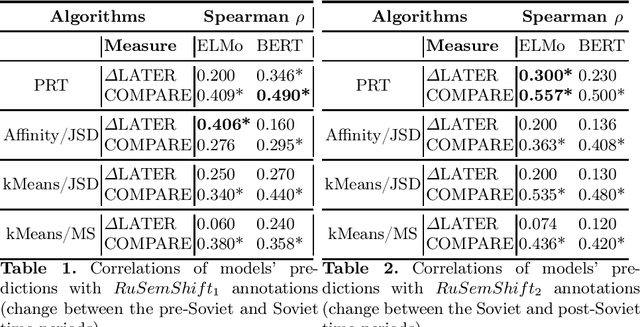Get our free extension to see links to code for papers anywhere online!Free add-on: code for papers everywhere!Free add-on: See code for papers anywhere!
Yuliya Trofimova
ELMo and BERT in semantic change detection for Russian
Oct 07, 2020Figures and Tables:

Abstract:We study the effectiveness of contextualized embeddings for the task of diachronic semantic change detection for Russian language data. Evaluation test sets consist of Russian nouns and adjectives annotated based on their occurrences in texts created in pre-Soviet, Soviet and post-Soviet time periods. ELMo and BERT architectures are compared on the task of ranking Russian words according to the degree of their semantic change over time. We use several methods for aggregation of contextualized embeddings from these architectures and evaluate their performance. Finally, we compare unsupervised and supervised techniques in this task.
* The 9th International Conference on Analysis of Images, Social
Networks and Texts (AIST 2020)
Via
 Add to Chrome
Add to Chrome Add to Firefox
Add to Firefox Add to Edge
Add to Edge